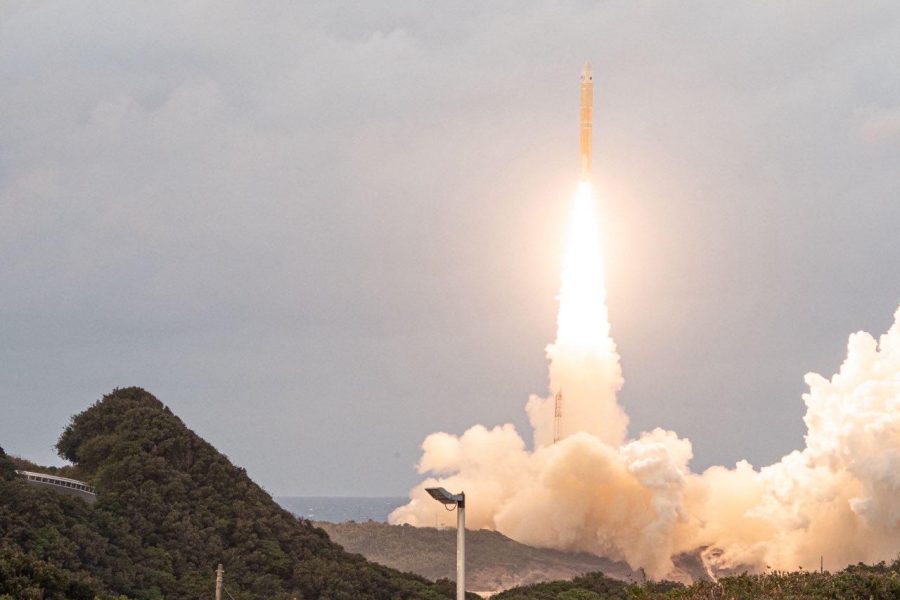A Japanese navigation satellite launched from one of Japan’s southernmost islands earlier this week, carrying into space a U.S. Space Force space domain awareness payload.
The successful Feb. 2 launch aboard a Japanese H3 rocket is a milestone in the U.S.-Japan alliance and in the Space Force’s push to deepen its international partnerships. It marks just the third USSF payload to be hosted on a foreign-owned satellite.
The host satellite, part of Japan’s Quasi-Zenith Satellite System, a navigation constellation that augments the U.S.’s Global Positioning System, also carries what USSF dubbed the “QZSS Hosted Payload,” which will monitor activity in space from the satellite’s geosynchronous orbit over the Indo-Pacific region. Data from the sensor will feed into the Space Surveillance Network, a collection of sensors that track activity in space.
The Space Force’s fourth foreign-hosted payload is scheduled to go up with a new QZSS satellite late this year, according to a Space Force release.
Mission Delta 2, which is responsible for the space domain awareness mission, will operate the payloads, said delta commander Col. Raj Agrawal in a statement. “Congratulations to both nations on this achievement,” Agrawal said. “Mission Delta 2 is honored to operate these payloads as they get on orbit on behalf of the USSF. These sensors will support the fusion of space- and ground-based Space Domain Awareness to further reinforce all-domain collective defense with allies and partners in the Indo-Pacific.”
The roots of the QZSS-hosted payload program date to a 2020 deal between the U.S. and Japan. While RAND Corp. analysts questioned the value of the deal in 2023, concerns about space domain awareness have increased since then. In 2024 alone, China:
- Experienced a rocket break up in low-Earth orbit, scattering debris that now must be monitored until it falls back to Earth;
- Surpassed 1,000 satellites in orbit, including many for monitoring the Western Pacific;
- Maneuvered satellites in geosynchronous orbit, including “crazy” moves that hold other satellites at risk, one analyst told Space Force officials.
In the face of those developments, Space Force officials have stressed the need for increased domain awareness. Col. Bryon McClain, program executive officer for space domain awareness and combat power, said in June 2024 that USSF is pivoting to new ways to achieve space domain awareness and looking at “a whole bunch of different ideas that really could mix together.”
In a statement, McClain praised the QZSS launch as “historic” and a key contribution to the Space Force’s efforts.
“In an increasingly contested space domain, Japan’s contribution to the U.S. DOD’s deterrence strategy has been, and will continue to be, key to INDOPACOM awareness and operations,” he said. “We look forward to continuing to collaborate with Japan on space modernization, data sharing, satellite communications, and more.”
The first foreign-hosted U.S. Space Force payloads went into orbit just six months ago, in August 2024, when two satellites procured by Space Norway launched with USSF payloads for Arctic communications. The Enhanced Polar Systems-Recapitalization program saved millions of dollars, officials said.
Pentagon leaders say collaborating with other countries, as well as industry, is especially important for the Space Force given the service’s relatively small size and budget and wide-ranging missions. To accomplish all that the joint force needs, they say, the Space Force needs to be efficient and leverage every partnership it can. On top of that, other nations are eager to build up their own space capabilities.
